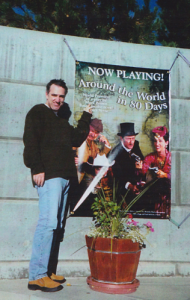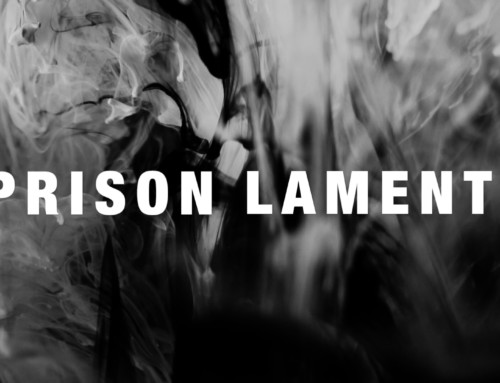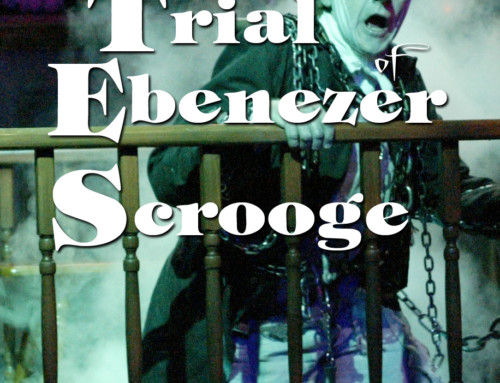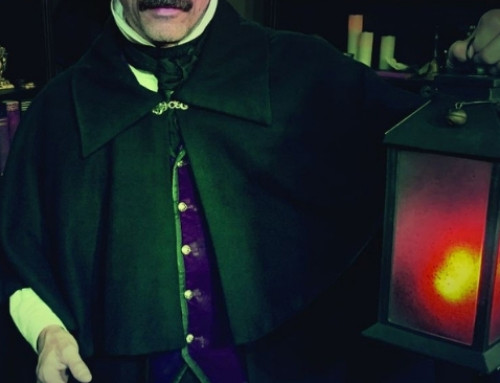I Wrote That?
I’ve been working on a one-act version of “Around the World in 80 Days.” With most theatres only streaming productions, I feel shorter plays (no intermission) are going to be more popular. And for years my friend David Emmes has been pushing me to do a one-act version.
I’m changing it up a bit from the two-act version, so I went back to the book to look up a few things. I came across this passage from the book. It’s been 20 years since I wrote the script and I can’t remember what I was thinking when I transformed what Verne wrote to what I wrote. (Frankly, I can’t remember how I do that with most of my adaptations. When I go back and look at what I’ve done, I usually feel like someone else wrote the scripts.) And it appears I took another section of the book and put it in the scene after the watch business and before ‘Passengers will get out here!’
Anyway, I felt it was fun to revisit.
What Jules Verne Wrote
The next day Sir Francis Cromarty asked Passepartout what time it was; to which, on consulting his watch, he replied that it was three in the morning. This famous timepiece, always regulated on the Greenwich meridian, which was now some seventy-seven degrees westward, was at least four hours slow. Sir Francis corrected Passepartout’s time, whereupon the latter made the same remark that he had done to Fix; and upon the general insisting that the watch should be regulated in each new meridian, since he was constantly going eastward, that is in the face of the sun, and therefore the days were shorter by four minutes for each degree gone over, Passepartout obstinately refused to alter his watch, which he kept at London time. It was an innocent delusion which could harm no one. The train stopped, at eight o’clock, in the midst of a glade some fifteen miles beyond Rothal, where there were several bungalows, and workmen’s cabins. The conductor, passing along the carriages, shouted, ‘Passengers will get out here!’
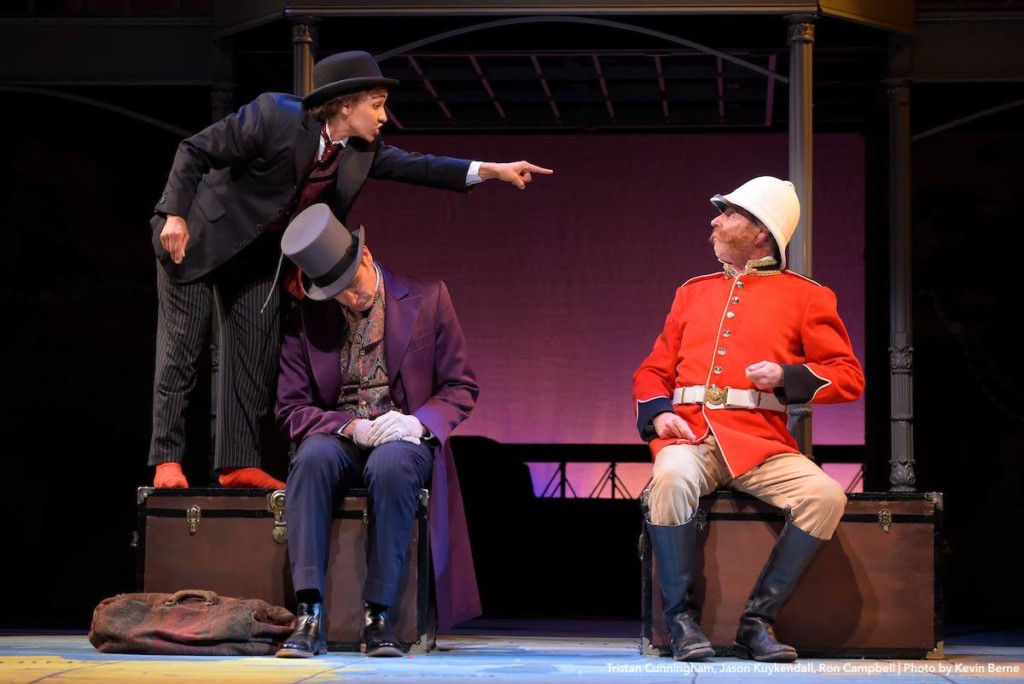
What I Wrote
SIR FRANCIS. At half-past twelve the train stops at Burhanpur. Towards evening, we enter the Satpura Mountains, and the next morning, at eight o’clock-
PASSEPARTOUT. Four o’clock.
SIR FRANCIS. (looking at his watch) No, it’s eight o’clock.
PASSEPARTOUT. (looks at “his” watch) My watch says it is four o’clock.
SIR FRANCIS. I’m afraid your watch is slow.
PASSEPARTOUT. My watch? A family watch, monsieur, which has come down from my great-grandfather? Slow? It doesn’t vary five minutes in the year.
SIR FRANCIS. Have you adjusted your watch since leaving London?
PASSEPARTOUT. It is a perfect timepiece!
SIR FRANCIS. I don’t doubt that. But since you are constantly moving eastward, the days are shorter by four minutes for each degree gone over. Therefore, you will need to adjust-
PASSEPARTOUT. I will not adjust my great-grandfather’s watch!
SIR FRANCIS. Very well. The next day, at eight o’clock-
PASSEPARTOUT. Four o’clock.
SIR FRANCIS. The train rushes through a glade some fifteen miles beyond Rothal. (sotto voce) It’s eight o’clock.
PASSEPARTOUT. I heard that.
SIR FRANCIS. Ah, we’re speeding along now.
PASSEPARTOUT. It says here that India is very dangerous. Is that true?
SIR FRANCIS. Not all of India is dangerous.
PASSEPARTOUT. That is a relief.
SIR FRANCIS. The area we’re passing through now, however, is extremely dangerous.
PASSEPARTOUT. It is?
SIR FRANCIS. Yes. Thanks to Feringhea, the King of the Stranglers.
PASSEPARTOUT. King of the Stranglers?
SIR FRANCIS. Yes. He and his men, in honour of the goddess of Death, strangle victims of all ages. This area can scarcely be travelled over without corpses being found in every direction.
PASSEPARTOUT. How horrible.
SIR FRANCIS. Yes.
PASSEPARTOUT. I hope we get out of here soon.
SIR FRANCIS Don’t worry. This locomotive is guided by an English engineer and fed with English coal. We’ll be in Calcutta before you know it.
The train stops.
The INDIAN TRAIN CONDUCTOR enters.
INDIAN TRAIN CONDUCTOR. Passengers will get out here!

